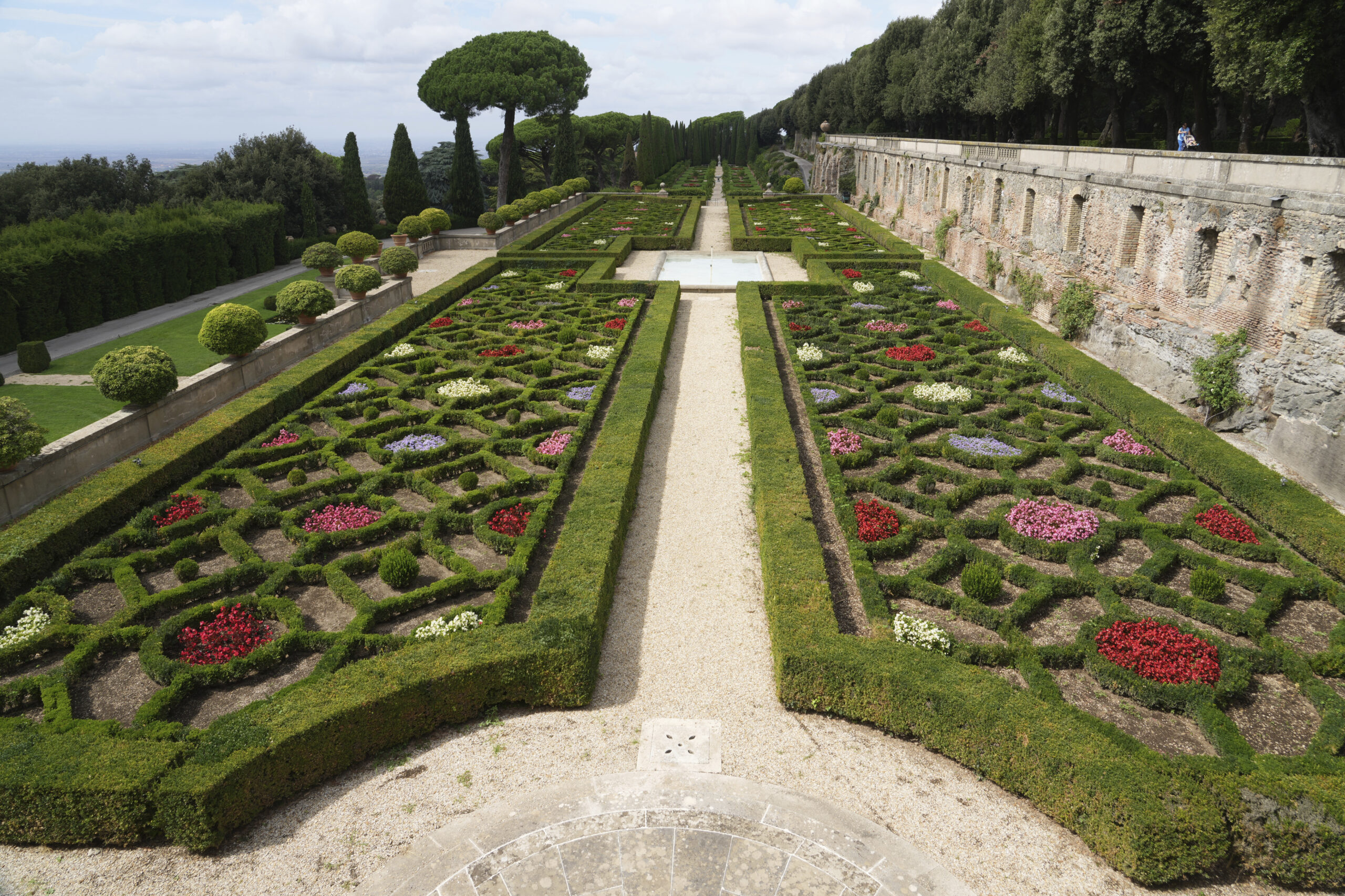
CASTEL GANDOLFO, Italy (AP) — The Vatican is inaugurating an ambitious educational center inspired by Pope Francis’ ecological legacy, a 55-acre utopian experiment in sustainable farming, vocational training and environmental schooling for kids and CEOs alike on the grounds of the papal estate on Lake Albano.
Pope Leo XIV, who has strongly reaffirmed Francis’ focus on the need to care for God’s creation, will formally open the center Friday, returning to the grounds where he spent his first papal summer. He’ll tour the lush gardens, vineyards and farm of Castel Gandolfo and celebrate a liturgy for the staff who have been working since 2022 to turn Francis’ ecological preaching into practice.
Officials on Tuesday gave a sneak peek tour of the project’s heart: A huge greenhouse in the same curved, embracing shape as the colonnade of St. Peter’s Square that faces a 10-room educational facility and dining hall. Once it’s up and running, visiting groups can come for an afternoon school trip to learn about organic farming, or a weekslong course on regenerative agriculture.
The project was inspired by Francis’ 2015 encyclical “Laudato Si” (Praised Be), which cast care for the planet as an urgent and existential moral concern that was inherently tied to questions of human dignity and justice, especially for the poor.
In the 10 years since, a grassroots movement has taken root in the church to implement its holistic message via workshops, conferences and now most tangibly, the educational center named for the encyclical, Borgo Laudato Si.
The center aims to accomplish many of the goals of the environmental cause. Solar panels will provide all the power the facility needs, plastics will be banned and recycling and composting systems will be used to reach zero-waste. Officials say water will be conserved and maximized via “smart irrigation” systems that use Artificial Intelligence to determine plants needs, along with rainwater harvesting and the installation of wastewater treatment and reuse systems.
The Vatican’s first-ever vocational school on the grounds will aim to provide on-site training in sustainable gardening, organic winemaking and olive harvesting to offer new job opportunities for particularly vulnerable groups: victims of domestic violence, refugees, recovering addicts and rehabilitated prisoners. The products made will be sold on-site, with profits re-invested in the educational center: Laudato Si wine, organic olive oil, herbal teas from the farm’s aromatic garden and cheese made from its 60 dairy cows.
The Rev. Manuel Dorantes, the center’s director, stressed that the project is still in its beginning phase – there are currently no on-site dormitories or residences for visitors. But the center has already received some trial school groups and placed about a dozen workers in jobs after they completed an inaugural vocational training session.
“The message that Pope Francis wanted to send is that if we, the smallest city-state in the world, can do this, what is the potential for other states that are bigger than us, that have more resources than us,” Dorantes said.
Officials declined to discuss the financing of the project, other than to say an undisclosed number of partners had invested in it and that confidential business plans precluded the Vatican from releasing further information.
___
Associated Press religion coverage receives support through the AP’s collaboration with The Conversation US, with funding from Lilly Endowment Inc. The AP is solely responsible for this content.
